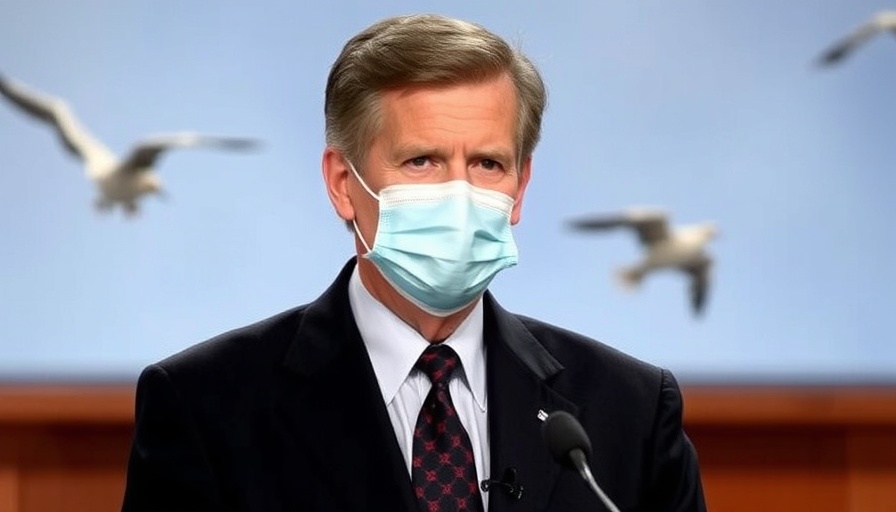
Examining RFK Jr.'s Controversial Bird Flu Strategy
In a recent statement, Health and Human Services Secretary Robert F. Kennedy Jr. proposed a controversial strategy concerning the ongoing avian influenza outbreak: to allow the virus to 'run through the flock' of infected birds on poultry farms. His suggestion raises serious concerns among public health experts about its potential implications for both the welfare of bird populations and public health.
The Current State of Avian Influenza in the U.S.
Bird flu has been escalating in the U.S. since March 2024, affecting both wild birds and commercial poultry, with reports of 70 human cases leading to one fatality. Recent outbreaks further complicate the health landscape, particularly with the emergence of the H7N9 strain, which poses significant threats not only to poultry but also to human health. This strain was confirmed in Mississippi, marking a concerning trend as it has proven deadly in past occurrences.
The Flaws in a 'Let It Spread' Approach
Meghan Davis, a public health expert from Johns Hopkins, strongly criticized Kennedy's suggestion, labeling it as a 'terrible idea.' Allowing the virus to circulate broadly without control mechanisms could lead to widespread suffering among birds, amplify the virus's presence, and potentially increase its chance of mutation into more virulent forms that could infect humans more easily.
Public Health Implications of Ignoring Expert Advice
Ignoring the potential dangers of such strategies, particularly in the wake of a rapidly changing virus landscape, can set back public health efforts considerably. Instead of allowing the virus to circulate freely, experts recommend implementing strict biosecurity measures on farms and swift culling of infected flocks. These practices not only help safeguard bird populations but also protect the broader human population from possible outbreaks.
Conclusion: Rethinking Public Health Strategies
The discourse surrounding avian influenza is crucial, especially as it intersects with public health strategies. There is a dire need for policymakers to heed expert advice and prioritize measures that protect both wildlife and human populations. As the situation evolves, staying informed and proactive can help mitigate risks associated with avian flu.
 Add Row
Add Row  Add
Add 




 Add Row
Add Row  Add
Add 

Write A Comment